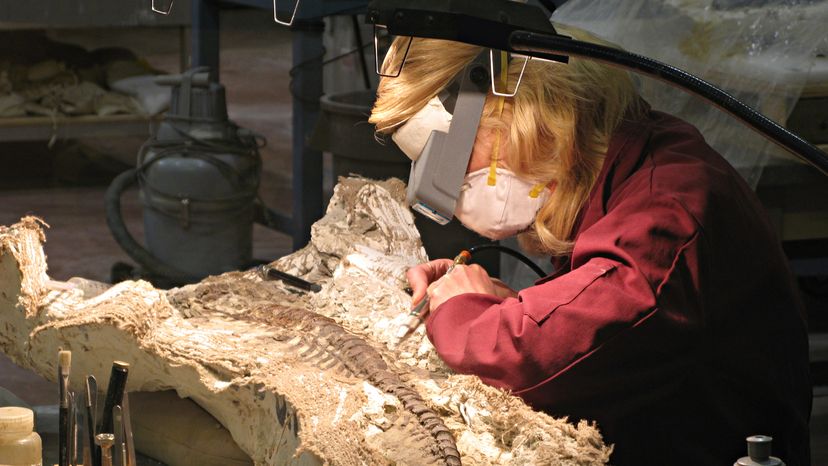
Paleontology is the investigation of past life on earth, through the study of fossils. Fossils are the remains of once living organisms that have been preserved in the earth's crust. Perhaps the most famous fossils are those of dinosaurs. Paleontology is more than such high profile fossils; it covers the study of all fossils from those of single-celled organisms right through to those of animals with backbones. As a science, it covers a broad field. Therefore a paleontologist really needs to know about physics, chemistry, biology, and geology. A modern paleontologist needs to have a high level of computer skills and be competent in statistical analysis [source: Paleontological Research Institute]. Read here to find how to fulfill your passion for the study of the ancient past.
- Get a good foundation in math and science while in high school. These subjects will give you a broad base to start on your college studies.
- Get some hands-on experience. Find a dig you could join during your vacation.
- Choose a college with a good reputation in the sciences. Study biology, geology or preferably both. It's best to study for a double major. If that's not possible, major in one of the subjects and take as many courses as you can in the second subject. Study at least a year of physics, chemistry and mathematics as part of your bachelor's degree coursework.
- Attend a graduate course in paleontology. If you need more experience in academic research, you might consider getting a master's degree before embarking on a doctorate. If you already have a strong interest in a particular area of paleontology, look for a graduate school where the professors are experts in that field.
- Get a job in paleontology. Most people employed in the field of paleontology work for universities, teaching geology as well as paleontology. Some work for museums and carry out their own research. There are also some jobs available in government survey work or with oil companies [sources: Paleontological Research Institute, Scholastic].
Advertisement